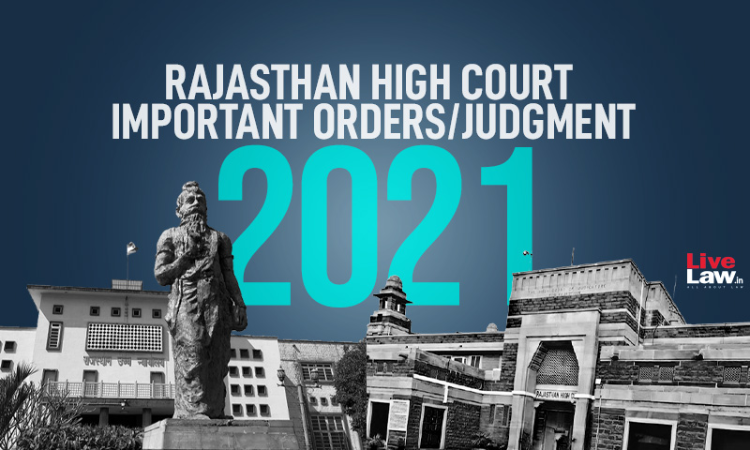- Home
- /
- Top Stories
- /
- Rajasthan High Court: Important...
Rajasthan High Court: Important Orders/Judgments Of 2021
Sparsh Upadhyay
2 Jan 2022 10:16 AM IST
As the end of year 2021 is nearing, LiveLaw brings to you a bunch of important Cases from the Rajasthan High Court. This digest includes 48 important orders and judgments, spread across 11 different headsWomen/Children Centric Cases 1. In Digital Era, Employees Working In Different States To Be Treated As 'One Work Place' For Purposes Of Sexual Harassment At Workplace: Rajasthan High...
Next Story



